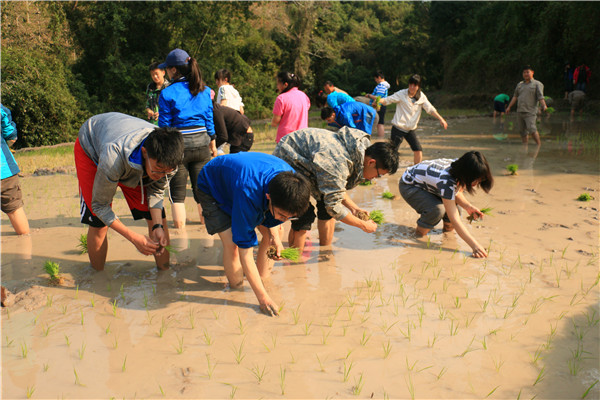Going beyond tourism
By Chen Liang ( China Daily ) Updated: 2015-07-11 08:15:07
 |
|
Students of the Hainan tour help villagers plant rice seedlings. [Photos Provided To China Daily] |
Many of her alumni have been involved in conservation and research work in the country's nature reserves, she says. Some work with nature reserves, some with international conservation NGOs, such as International Fund for Animal Welfare and Kadoorie Conservation China, and others are doing research in the reserves.
She cooperated with IFAW to design the Asian elephant tour and with Kadoorie for the Hainan tour.
"I knew that our reserve managers had been looking for responsible visitors to come and create some reliable sources of income for the local communities and many researchers also expected to share their understanding of our nature with the public," Luo says. "So I had the resources and capacity to develop some distinctive eco-tourism products."
Hiking
She believes her company's products should target middle school students, especially those from international schools and best aged around 15.
"Our week-long tours usually feature hiking and staying in nature reserves. So it's better for participating students to be able to travel independently," she says. "Fifteen is usually the age that a child has enough confidence to travel alone. We specifically tailor our tours for them, because we found that when children travel with their parents, they often become less responsible and reluctant to explore the unknown."
Compared with students from public schools who can only travel in their summer and winter vacations, students from international schools have more freedom to join a nature experience tour. "International schools usually pay more attention to nurture children's interest to nature."
|
|
|
|
|
|
|
|

























 Raymond Zhou:
Raymond Zhou: Pauline D Loh:
Pauline D Loh: Hot Pot
Hot Pot Eco China
Eco China China Dream
China Dream China Face
China Face






